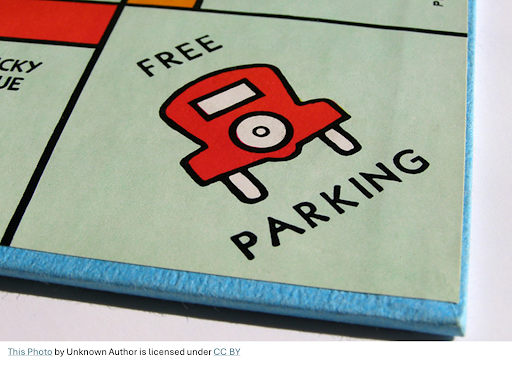When a stranger holds the door for you, don’t you feel just a tad bit cheerier? Don’t you think, “Oh, how nice”? This act demonstrates the simple principle behind how we can cultivate compassion. People are best led by example, so your simple act of kindness may spark someone else, who sparks another and the chain reaction continues. You never know what impact your moment of compassion could have; with all of our minds focused a little more on what we can do for others, even if it is just to brighten someone’s day, we will promote empathy and kindness throughout people’s lives. You only have a couple weeks left here at DU this quarter; post inspirational sticky notes in the bathroom, pay for the person behind you at Jazzman’s or simply give someone an infectiously kind smile.
Anne Herbert, an American writer, was an advocate of practicing “random acts of kindness and senseless acts of beauty.” She emphasized how it goes beyond these singular acts and is about transforming our mentality. According to Charities Aid Foundation’s (CAF) continuous study of various Gallup polls, America is currently ranked the fifth kindest nation in the world.
It is the opinion of some individuals, including University of Oakland Professor Barbara Oakley, that this demonstrates a fixation with the notion of compassion. She debates that our eagerness to exhibit kindness is really motivated by narcissism and can also have unforeseen repercussions. Other academics have looked at this phenomenon of negative consequences generated by aid. However, it is most prevalently a problem when individuals or groups force themselves upon a different culture or present a project with their own agenda. Herbert’s prompting is not intended to generate groups, but rather to encourage individual to recognize the reciprocal benefits from performing kind deeds.
After Colorado’s “summer of violence” in 1993, when seventy-four individuals, including a ten-month old infant, were murdered, a group of concerned Colorado citizens established the Random Acts of Kindness Foundation. Their mission is about “inspiring people to practice kindness and pass it on to others.” If you need some inspiration, check out their website; they give great suggestions, from lending someone a pencil, using less plastic, being a designated driver or visiting an animal shelter. Their website provides not only stories and ideas, but research and articles on the impacts and evidence behind this “simple acts” theory. Cultivating compassion is founded on empowering people and demonstrating what social norms should be accepted.
We can influence the behavior of others through taking initiative and highlighting our human tendency towards empathy. Controlled experiments, such as the “superman test” have been performed that demonstrate that when individuals are empowered they are more likely to help others. Unfortunately, people are known to fall victim to the “bystander effect.”
This term refers to when people feel less personal responsibility when in the presence of others. Such as when someone is apparently not well lying in the middle of the sidewalk and, instead of helping, people participate in denial, making excuses or transferring responsibility onto the others present.
Countless studies have been conducted that document this disturbing circumstantial response. Don’t be a bystander; take initiative and encourage others to follow your lead. In order to overcome this condition, people also need to not only be empowered but educated.
One study put half of their participants through compassionate meditation training, while the others received nothing. Each individual was later asked into a waiting room containing three seats, two of which were occupied. Every individual took the remaining seat. Shortly after, a person on crutches entered the room. Fifty percent of the group that had undergone training offered their seat, in comparison with only fifteen percent from the other group. Innately we all possess compassion, but often it must be awakened. We must be made aware and given the tools.
Colorado’s governor during the “summer of violence”, Roy Romer, stated that these egregious acts were a result of the lack of “moral framework that teaches them [young people] to respect life.” Many schools and organizations have begun to combat this issue by creating and providing courses or workshops educating people on how to incorporate kindness more fully into their lives.
University of Colorado: Boulder has instituted a program called “Kindness in the Classroom” and various other universities around the nation have begun establishing Random Acts of Kindness (RAK) clubs. Though DU currently has many student organizations striving to aid various communities, such as DU Service & Change, GlobeMed or even the various multicultural clubs, our only RAK initiative takes place once a year. On National Random Acts of Kindness Day, November 13th, students will be handing out cookies. DU is comprised of innovative, enthusiastic and determined students that could, individual to individual, could generate a RAK movement on campus.
Even if every individual reading this article performs one random, simple act of kindness, it could have untold effects on our campus. Together we can generate an environment and a culture that encourages, expects and rewards empathy towards others. Here at DU, it is all too easy to participate compassionately, whether it be attending the Fire and Ice Throwback Prom hosted by The Invictus Initiative on November 13th, signing the ZBT ball that supports the Children’s Miracle Network or giving out snacks during finals week.
Recognize that you have the power to influence the actions of others, to inspire and to cultivate compassion. One act can have an impact. Initiate a chain reaction and leave for break knowing you brightened someone’s day, you encouraged compassion among our student body.











